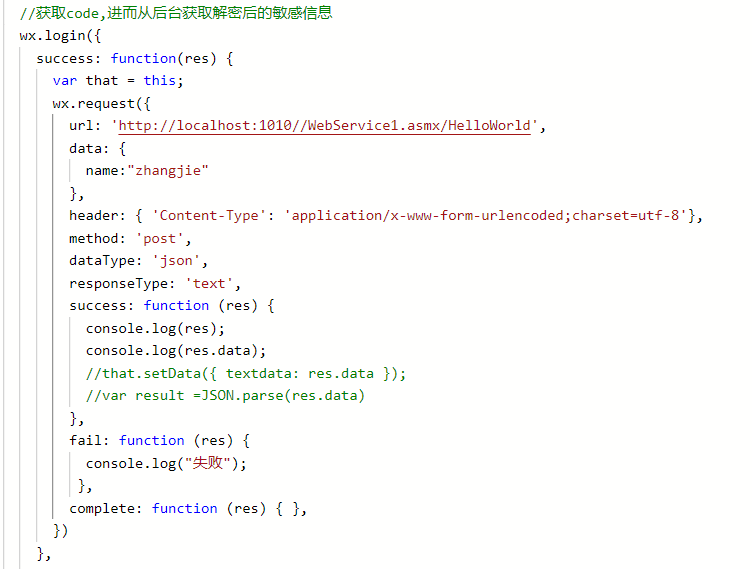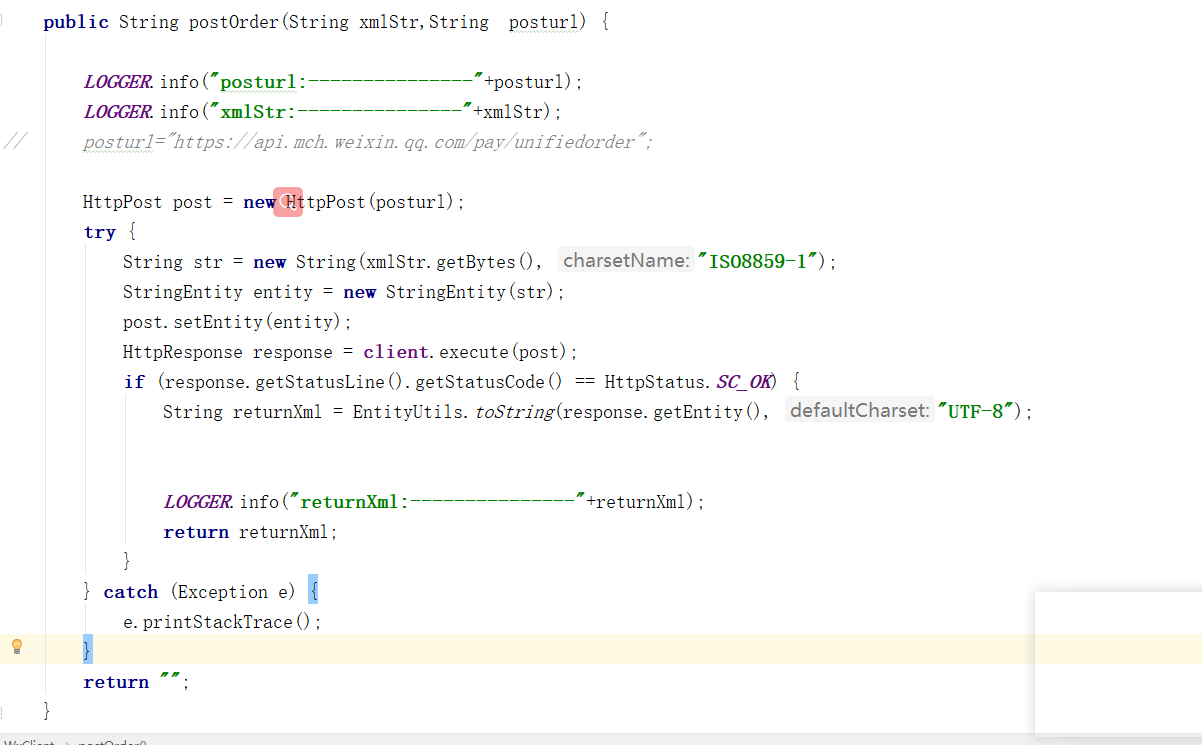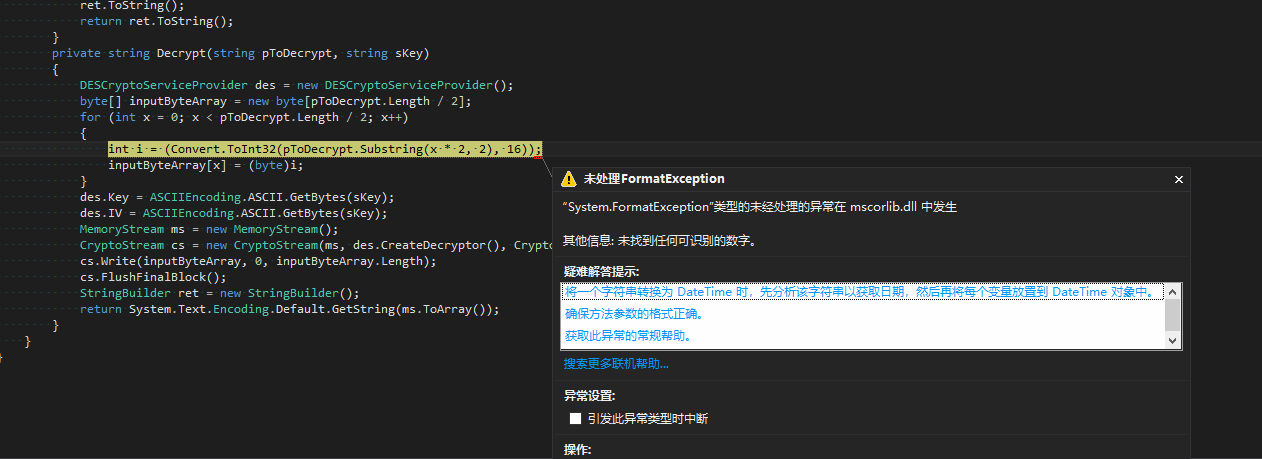可以将文章内容翻译成中文,广告屏蔽插件可能会导致该功能失效(如失效,请关闭广告屏蔽插件后再试):
问题:
I would like to get the percent encoded string for these specific letters, how to do that in objective-c?
Reserved characters after percent-encoding
! * \' ( ) ; : @ & = + $ , / ? # [ ]
%21 %2A %27 %28 %29 %3B %3A %40 %26 %3D %2B %24 %2C %2F %3F %23 %5B %5D
Percent-encoding wiki
Please test with this string and see if it do work:
myURL = @\"someurl/somecontent\"
I would like the string to look like:
myEncodedURL = @\"someurl%2Fsomecontent\"
I tried with the stringByAddingPercentEscapesUsingEncoding: NSASCIIStringEncoding already but it does not work, the result is still the same as the original string. Please advice.
回答1:
I\'ve found that both stringByAddingPercentEscapesUsingEncoding: and CFURLCreateStringByAddingPercentEscapes() are inadequate. The NSString method misses quite a few characters, and the CF function only lets you say which (specific) characters you want to escape. The proper specification is to escape all characters except a small set.
To fix this, I created an NSString category method to properly encode a string. It will percent encoding everything EXCEPT [a-zA-Z0-9.-_~] and will also encode spaces as + (according to this specification). It will also properly handle encoding unicode characters.
- (NSString *) URLEncodedString_ch {
NSMutableString * output = [NSMutableString string];
const unsigned char * source = (const unsigned char *)[self UTF8String];
int sourceLen = strlen((const char *)source);
for (int i = 0; i < sourceLen; ++i) {
const unsigned char thisChar = source[i];
if (thisChar == \' \'){
[output appendString:@\"+\"];
} else if (thisChar == \'.\' || thisChar == \'-\' || thisChar == \'_\' || thisChar == \'~\' ||
(thisChar >= \'a\' && thisChar <= \'z\') ||
(thisChar >= \'A\' && thisChar <= \'Z\') ||
(thisChar >= \'0\' && thisChar <= \'9\')) {
[output appendFormat:@\"%c\", thisChar];
} else {
[output appendFormat:@\"%%%02X\", thisChar];
}
}
return output;
}
回答2:
The iOS 7 SDK now has a better alternative tostringByAddingPercentEscapesUsingEncoding that does let you specify that you want all characters escaped except certain allowed ones. It works well if you are building up the URL in parts:
NSString * unescapedQuery = [[NSString alloc] initWithFormat:@\"?myparam=%d\", numericParamValue];
NSString * escapedQuery = [unescapedQuery stringByAddingPercentEncodingWithAllowedCharacters:[NSCharacterSet URLQueryAllowedCharacterSet]];
NSString * urlString = [[NSString alloc] initWithFormat:@\"http://ExampleOnly.com/path.ext%@\", escapedQuery];
Although it\'s less often that the other parts of the URL will be variables, there are constants in the NSURLUtilities category for those as well:
[NSCharacterSet URLHostAllowedCharacterSet]
[NSCharacterSet URLUserAllowedCharacterSet]
[NSCharacterSet URLPasswordAllowedCharacterSet]
[NSCharacterSet URLPathAllowedCharacterSet]
[NSCharacterSet URLFragmentAllowedCharacterSet]
[NSCharacterSet URLQueryAllowedCharacterSet] includes all of the characters allowed in the query part of the URL (the part starting with the ? and before the # for a fragment, if any) including the ? and the & or = characters, which are used to delimit the parameter names and values. For query parameters with alphanumeric values, any of those characters might be included in the values of the variables used to build the query string. In that case, each part of the query string needs to be escaped, which takes just a bit more work:
NSMutableCharacterSet * URLQueryPartAllowedCharacterSet; // possibly defined in class extension ...
// ... and built in init or on first use
URLQueryPartAllowedCharacterSet = [[NSCharacterSet URLQueryAllowedCharacterSet] mutableCopy];
[URLQueryPartAllowedCharacterSet removeCharactersInString:@\"&+=?\"]; // %26, %3D, %3F
// then escape variables in the URL, such as values in the query and any fragment:
NSString * escapedValue = [anUnescapedValue stringByAddingPercentEncodingWithAllowedCharacters:URLQueryPartAllowedCharacterSet];
NSString * escapedFrag = [anUnescapedFrag stringByAddingPercentEncodingWithAllowedCharacters:[NSCharacterSet URLFragmentAllowedCharacterSet]];
NSString * urlString = [[NSString alloc] initWithFormat:@\"http://ExampleOnly.com/path.ext?myparam=%@#%@\", escapedValue, escapedFrag];
NSURL * url = [[NSURL alloc] initWithString:urlString];
The unescapedValue could even be an entire URL, such as for a callback or redirect:
NSString * escapedCallbackParamValue = [anAlreadyEscapedCallbackURL stringByAddingPercentEncodingWithAllowedCharacters:URLQueryPartAllowedCharacterSet];
NSURL * callbackURL = [[NSURL alloc] initWithString:[[NSString alloc] initWithFormat:@\"http://ExampleOnly.com/path.ext?callback=%@\", escapedCallbackParamValue]];
Note: Don\'t use NSURL initWithScheme:(NSString *)scheme host:(NSString *)host path:(NSString *)path for a URL with a query string because it will add more percent escapes to the path.
回答3:
NSString *encodedString = [myString stringByAddingPercentEscapesUsingEncoding:NSASCIIStringEncoding];
It won\'t replace your string inline; it\'ll return a new string. That\'s implied by the fact that the method starts with the word \"string\". It\'s a convenience method to instantiate a new instance of NSString based on the current NSString.
Note--that new string will be autorelease\'d, so don\'t call release on it when you\'re done with it.
回答4:
NSString\'s stringByAddingPercentEscapesUsingEncoding: looks like what you\'re after.
EDIT: Here\'s an example using CFURLCreateStringByAddingPercentEscapes instead. originalString can be either an NSString or a CFStringRef.
CFStringRef newString = CFURLCreateStringByAddingPercentEscapes(kCFAllocatorDefault, originalString, NULL, CFSTR(\"!*\'();:@&=+@,/?#[]\"), kCFStringEncodingUTF8);
Please note that this is untested. You should have a look at the documentation page to make sure you understand the memory allocation semantics for CFStringRef, the idea of toll-free bridging, and so on.
Also, I don\'t know (off the top of my head) which of the characters specified in the legalURLCharactersToBeEscaped argument would have been escaped anyway (due to being illegal in URLs). You may want to check this, although it\'s perhaps better just to be on the safe side and directly specify the characters you want escaped.
I\'m making this answer a community wiki so that people with more knowledge about CoreFoundation can make improvements.
回答5:
Following the RFC3986 standard, here is what I\'m using for encoding URL components:
// https://tools.ietf.org/html/rfc3986#section-2.2
let rfc3986Reserved = NSCharacterSet(charactersInString: \"!*\'();:@&=+$,/?#[]\")
let encoded = \"email+with+plus@example.com\".stringByAddingPercentEncodingWithAllowedCharacters(rfc3986Reserved.invertedSet)
Output: email%2Bwith%2Bplus%40example.com
回答6:
If you are using ASI HttpRequest library in your objective-c program, which I cannot recommend highly enough, then you can use the \"encodeURL\" helper API on its ASIFormDataRequest object. Unfortunately, the API is not static so maybe worth creating an extension using its implementation in your project.
The code, copied straight from the ASIFormDataRequest.m for encodeURL implementation, is:
- (NSString*)encodeURL:(NSString *)string
{
NSString *newString = NSMakeCollectable([(NSString *)CFURLCreateStringByAddingPercentEscapes(kCFAllocatorDefault, (CFStringRef)string, NULL, CFSTR(\":/?#[]@!$ &\'()*+,;=\\\"<>%{}|\\\\^~`\"), CFStringConvertNSStringEncodingToEncoding([self stringEncoding])) autorelease]);
if (newString) {
return newString;
}
return @\"\";
}
As you can see, it is essentially a wrapper around CFURLCreateStringByAddingPercentEscapes that takes care of all the characters that should be properly escaped.
回答7:
Before I noticed Rob\'s answer, which appears to work well and is preferred as it\'s cleaner, I went ahead and ported Dave\'s answer to Swift. I\'ll leave it here in case anyone is interested:
public extension String {
// For performance, I\'ve replaced the char constants with integers, as char constants don\'t work in Swift.
var URLEncodedValue: String {
let output = NSMutableString()
guard let source = self.cStringUsingEncoding(NSUTF8StringEncoding) else {
return self
}
let sourceLen = source.count
var i = 0
while i < sourceLen - 1 {
let thisChar = source[i]
if thisChar == 32 {
output.appendString(\"+\")
} else if thisChar == 46 || thisChar == 45 || thisChar == 95 || thisChar == 126 ||
(thisChar >= 97 && thisChar <= 122) ||
(thisChar >= 65 && thisChar <= 90) ||
(thisChar >= 48 && thisChar <= 57) {
output.appendFormat(\"%c\", thisChar)
} else {
output.appendFormat(\"%%%02X\", thisChar)
}
i++
}
return output as String
}
}
回答8:
In Swift4:
var str = \"someurl/somecontent\"
let percentEncodedString = str.addingPercentEncoding(withAllowedCharacters: .alphanumerics)




